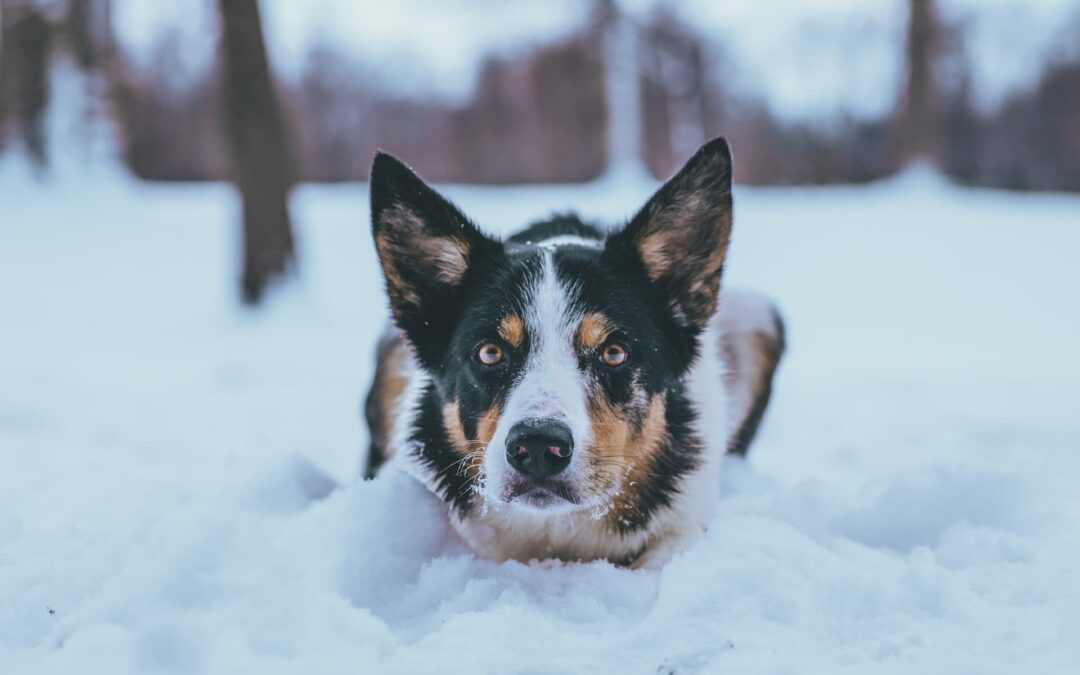Keeping Your Pets Safe in Cold Weather
Most of us know about warm-weather related health hazards when it comes to our pets, but colder weather comes with its own set of potential problems. To insure your furry friends can enjoy our Minnesota winter, here are some tips to keep them safe and healthy this season:
- Has your pet had his or her preventive care (wellness exam) this year? Cold weather may worsen some medical conditions, such as arthritis, so if your pet is overdue for his or her checkup, now is a great time to schedule!
- Know your pet’s limits. While some pets enjoy playing in the snow, tolerance for cold can vary among different animals. You may need to shorten walks for elderly or arthritic pets, and these animals may be more likely to slip or fall in the snow. Certain medical conditions, such as heart disease, kidney disease, or hormonal problems like hypothyroidism or Cushing’s disease may interfere with pets’ ability to regulate their body temperature. Short-haired dogs and those with shorter legs may feel the cold more quickly. If you have questions about how much your pet can tolerate, please give us a call or ask at your pet’s next visit.
- If your dog does have a short coat, consider investing in a coat or sweater to add extra warmth.
- Check your dog’s paws after going outdoors. Wipe them down to remove excess snow, which can lead to ice balls forming in fur, and remove any sand or salt. We recommend pet-safe deicer for your sidewalks and driveway if these products are needed. Trimming fur between the toes can prevent excess accumulation. Booties are another option if your dog will tolerate them.
- If you park your car outdoors, be aware that feral or outdoor cats may choose to take a nap near a warm engine. Before starting your car, check underneath it, bang on the hood or honk the horn to alert any feline hitchhikers to potential danger.
- Snow and ice may mask scents that help pets find their way home in the winter time. To make sure your pets can be safely returned to you if they become lost, make sure each pet has a collar with an up-to-date ID tag, and consider microchipping your pets also. Microchips are inexpensive and cannot be easily removed, making them an excellent backup method of identification for most pets.
- Prevent accidental poisonings. Many common household items can be deadly for pets. Clean up any spilled antifreeze right away. Keep all medications out of your pet’s reach. Food containing chocolate, onions, and the artificial sweetener xylitol are also potential hazards and should be safely stored away from pets.
- Use caution around frozen lakes and ponds. Our warmer than normal December has delayed freezing of many lakes, and those that are frozen may not support your pet’s weight. Avoid allowing pets to run on these surfaces unless you are absolutely certain that the ice is at a safe thickness.
- Feed appropriately. If your pets are less active in cold weather, they will not need as much food to maintain a healthy weight. If your pets live outdoors, they may need additional calories to stay warm. If you have questions about how much to feed, please ask us.
Please contact us if you have any questions regarding keeping your pet safe during the cold Minnesota days. 952-929-0074.

